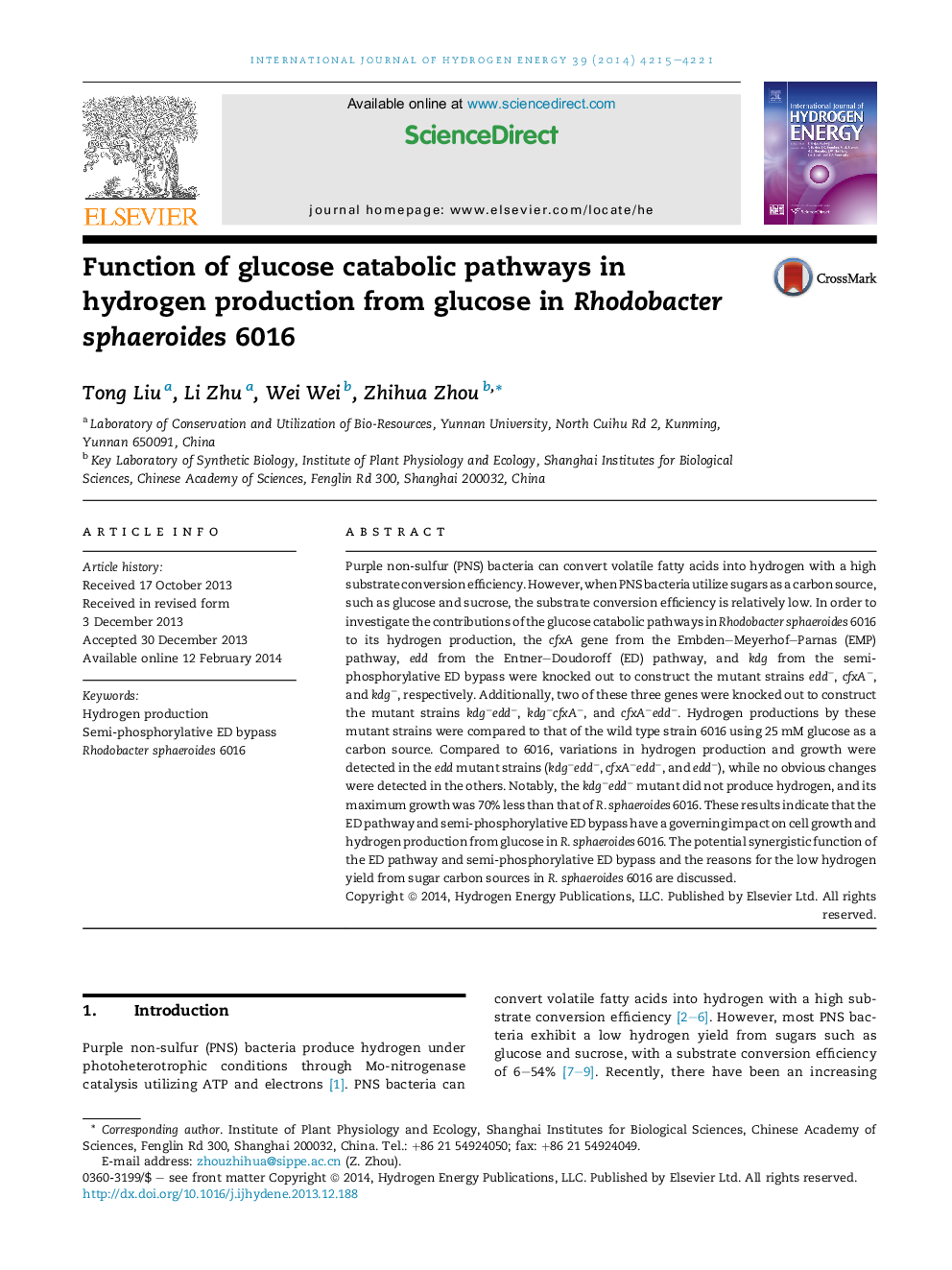| Article ID | Journal | Published Year | Pages | File Type |
|---|---|---|---|---|
| 1270509 | International Journal of Hydrogen Energy | 2014 | 7 Pages |
•Entner–Doudoroff pathway is foremost in hydrogen production from glucose in Rs6016.•The active semi-phosphorylative ED bypass in Rs6016 contribute less in hydrogen production.•Embden–Meyerhof–Parnas pathway in Rs6016 has no impact on hydrogen production from glucose.
Purple non-sulfur (PNS) bacteria can convert volatile fatty acids into hydrogen with a high substrate conversion efficiency. However, when PNS bacteria utilize sugars as a carbon source, such as glucose and sucrose, the substrate conversion efficiency is relatively low. In order to investigate the contributions of the glucose catabolic pathways in Rhodobacter sphaeroides 6016 to its hydrogen production, the cfxA gene from the Embden–Meyerhof–Parnas (EMP) pathway, edd from the Entner–Doudoroff (ED) pathway, and kdg from the semi-phosphorylative ED bypass were knocked out to construct the mutant strains edd−, cfxA−, and kdg−, respectively. Additionally, two of these three genes were knocked out to construct the mutant strains kdg−edd−, kdg−cfxA−, and cfxA−edd−. Hydrogen productions by these mutant strains were compared to that of the wild type strain 6016 using 25 mM glucose as a carbon source. Compared to 6016, variations in hydrogen production and growth were detected in the edd mutant strains (kdg−edd−, cfxA−edd−, and edd−), while no obvious changes were detected in the others. Notably, the kdg−edd− mutant did not produce hydrogen, and its maximum growth was 70% less than that of R. sphaeroides 6016. These results indicate that the ED pathway and semi-phosphorylative ED bypass have a governing impact on cell growth and hydrogen production from glucose in R. sphaeroides 6016. The potential synergistic function of the ED pathway and semi-phosphorylative ED bypass and the reasons for the low hydrogen yield from sugar carbon sources in R. sphaeroides 6016 are discussed.
